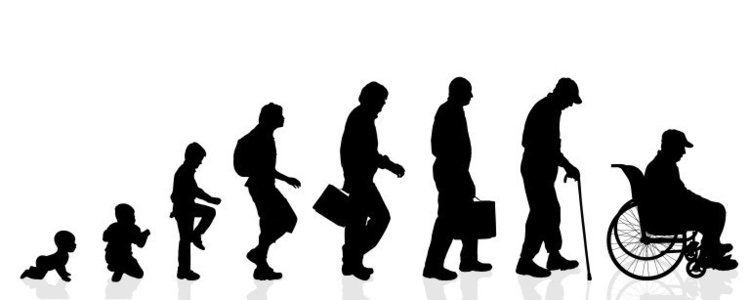Article reviewed and approved by Dr. Ibtissama Boukas, physician specializing in family medicine
We know that as we age, we become more and more prone to addiction. A Autonomy loss or an addiction can set in gradually, or on the contrary, suddenly. Do you feel any changes in your daily life? Are you wondering if this is the start of a loss of autonomy? To help you get to the bottom of it, we will see in this article everything related to the loss of autonomy.
Loss of autonomy: definition and causes
By definition, a Autonomy loss results in the inability of a subject to carry out certain daily acts without the help of a third person. Depending on the individual, a loss of autonomy can vary in nature and intensity. It can also manifest differently in two people.
In some, a addiction may manifest as an inability to get out of bed alone. In others, it is shown by memory problems.
The majority of causes are related to old age. The person then presents alterations of order:
- physical: such as the inability to make simple movements, to move, etc. ;
- psychic : like disturbances of thought;
- both physical and psychological.
There are also some factors that promote loss of autonomy.
Lack of physical activity
It remains essential to maintain regular physical activity, even when we are old. The important thing is to find an exciting and motivating hobby, such as yoga or Nordic walking. Although several sessions per week are recommended, one session is generally sufficient to keep the body active.
Accidents
In the event of accidents, the loss of autonomy is often brutal. This is especially what happens in the event of irreversible nerve damage.
Diseases
There are many diseases that can lead to addiction: osteoarthritis, Parkinson's disease or other senile diseases. In all cases, the loss of autonomy is generally manifested by the restriction of the physical capacities of the individual.
A socio-economic component
Certain situations prevent the subject from minimizing or anticipating their loss of autonomy. The closest example is the lack of financial resources to arrange the subject's home as soon as first signs of addiction, or even before.
What are the consequences and evolution of a loss of autonomy?
We can identify the consequences of loss of autonomy on the signs presented by the dependent people.
motor problems
The balance disorders are the most common symptoms of loss of motor skills in most people who suffer from it. This is explained by the decrease in muscle strength with age. Motor skills are also reduced. At this time, the risk of falling is at its maximum.
bad memory
An addiction can also affect memory. The consequences are dangerous such as forgetting medication or even taking a double dose.
Bad mood
The person's mood may change when they lose their autonomy. We often see more aggressiveness and stubbornness. The opposite is also possible with apathy (indifference and insensitivity) and constant fatigue.
Isolation
When a person is aware of his loss of autonomy, he tends to isolate himself. Social isolation is a serious consequence, as it can lead to depression. This is the most feared development.
Several situations can encourage the individual to this isolation. They are mainly :
- urinary incontinence;
- hearing loss;
- the mourning of his old life...
It should also be noted that the functioning of all body systems slows down with age. The impacts on food are particularly notable. Sometimes the elderly person no longer wants to eat. And the evolution of his general health can be catastrophic if the subject is undernourished.
What solutions to support people in a situation of dependency?
Equipment: useful for helping people with addictions
Material aids are the first solution in case of loss of autonomy. The equipment used varies depending on the disorder presented by the person.
For example, for those who have a balance problem, canes and walkers can help.
To facilitate the move, the family can call on an occupational therapist. He is a specialist in the adaptation of the environment in the face of a disorder. The aim is to prevent possible accidents and falls.
In this context, various changes are proposed:
- create a bedroom on one level;
- arrange the bathroom for more safety: non-slip walls and floors, optimal lighting, easy circulation, etc.
There are also accessories such as faucets, bath seats, stocking aids, can openers and other ergonomic utensils.
Redevelopments can be done in all rooms of the house. A remote alarm system can also be wise to get help quickly. Moreover, the institutions for this purpose are very numerous.
Home help
The immediate family can call on home help if needed. The main advantage of this option is that the elderly person can stay at home as long as possible. The latest statistics show that the majority of French people do not want to stay in retirement homes.
Home health aides can provide a variety of services, from shopping to preparing meals. The staff can also help the person with eating, vacuuming, bathing, etc.
Physiotherapy
There are " home nursing services » or SSIAD which allow dependent seniors to be kept at home. These people are often bedridden or confined to their chair. In the absence of appropriate exercises, there is a high risk of pressure sore formation. To avoid this complication, we recommend the help of a physiotherapist at home.
If the elderly parent does not want to stay in an institution for a long time, we must know that there are part-time infrastructures. We are talking about day care. Seniors can be taken there for physiotherapy.
If you have a senile disease like Alzheimer's disease, it is possible to spend a few days a week in specialized services.
Other community solutions exist for those who need them. Those are :
- residential homes;
- senior service residences;
- nursing homes.
These are real places to live. Each resident has their own room. Activities are organized for their well-being and health.
In addition, retirement homes organize collective workshops for their residents. While some of these activities aim to maintain their memory, others maintain their muscle function with age-appropriate gymnastics.
Mourning: a psychological aspect of a loss of autonomy
Each person reacts differently to bereavement. As incredible as it may seem, a loss of autonomy can present itself as bereavement. It's like saying goodbye to your old life.
Indeed, to accept this loss can be difficult. Faced with this, we can distinguish two personalities.
The most resilient personalities
For more resilient personalities, it is easier to begin a fresh start. They are able to overcome the loss of autonomy and the sadness that results from it. These people have always been optimistic in their lives.
Personalities who tend to depress
There is what is called “the social self” and “the selfish self”. The subjects who do not succeed in reinvesting a new life have remained on their "selfish ego".
The Depression
To be faced with a Autonomy loss is always a source of anxiety. Without appropriate support, people in this situation can sink into depression.
It is a real psychic distress. The warning signs are:
- restlessness;
- amimie: the subject seems to have a face that suffers;
- slow and difficult gestures;
- loss of interest or a feeling of boredom;
- the feeling of permanent weariness;
- loss of self-esteem;
- somatic disorders: insomnia, poor digestion, loss of appetite;
- want to die...
Sources
- https://alenvi.io/blog/la-psychologie-des-personnes-agees-face-a-la-perte-dautonomie/
- https://www.serviceshuma.com/amp/les-deuils-et-la-perte-d-autonomie-des-personnes-agees
- https://www.ouihelp.fr/conseils/services-a-domicile/perte-autonomie/
- https://www.capital.fr/votre-retraite/perte-d-autonomie-1348314?amp
- https://doctissimo.fr/html/dossiers/maison-retraite/articles/solutions-perte-d-autonomie.htm
- https://www.doctissimo.fr/html/dossiers/maison-retraite/articles/signes-perte-autonomie.htm


